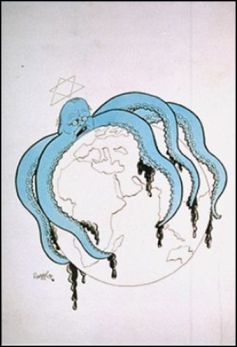The Deep Roots of Reaction: the Radical Right
The triumphant liberal capitalism of the 19th century faced two challenges by the close of the 1800s, the first, socialism, was its direct dialectical antithesis and would culminate in the development of the science of Marxism-Leninism. The other, which claimed to reject liberalism and all it stood for, would eventually fuse with capitalism itself: the radical right.
The radical right scorned the entire liberal project. Based on the conservative reaction against the ideals of the French Revolution, the radical right denied democracy, equality, and modernism; embracing instead traditionalism, romanticism, elitism and aristocracy, irrationalism, and (to varying degrees) racism and anti-Semitism.
Writers such as Henri Bergson, who rejected reason, focusing instead on sentiment, emotion, and ideas of a national or folk community; Oswald Spengler who claimed that Western civilization was in a state of decline and threatened by other, “lesser” races; and Friedrich Nietzsche, who attacked modern culture and endorsed the idea of the amoral “superman” who was “beyond good and evil” formed the foundation of what became known as “the radical right.”
Being more a collection of attitudes than a coherent movement or organized party, radical right sentiments were widespread yet amorphous. It would take the fires of World War I and the example of the victorious Bolshevik Revolution to fuse these attitudes into the movement that became known as fascism.





No comments:
Post a Comment
Comments